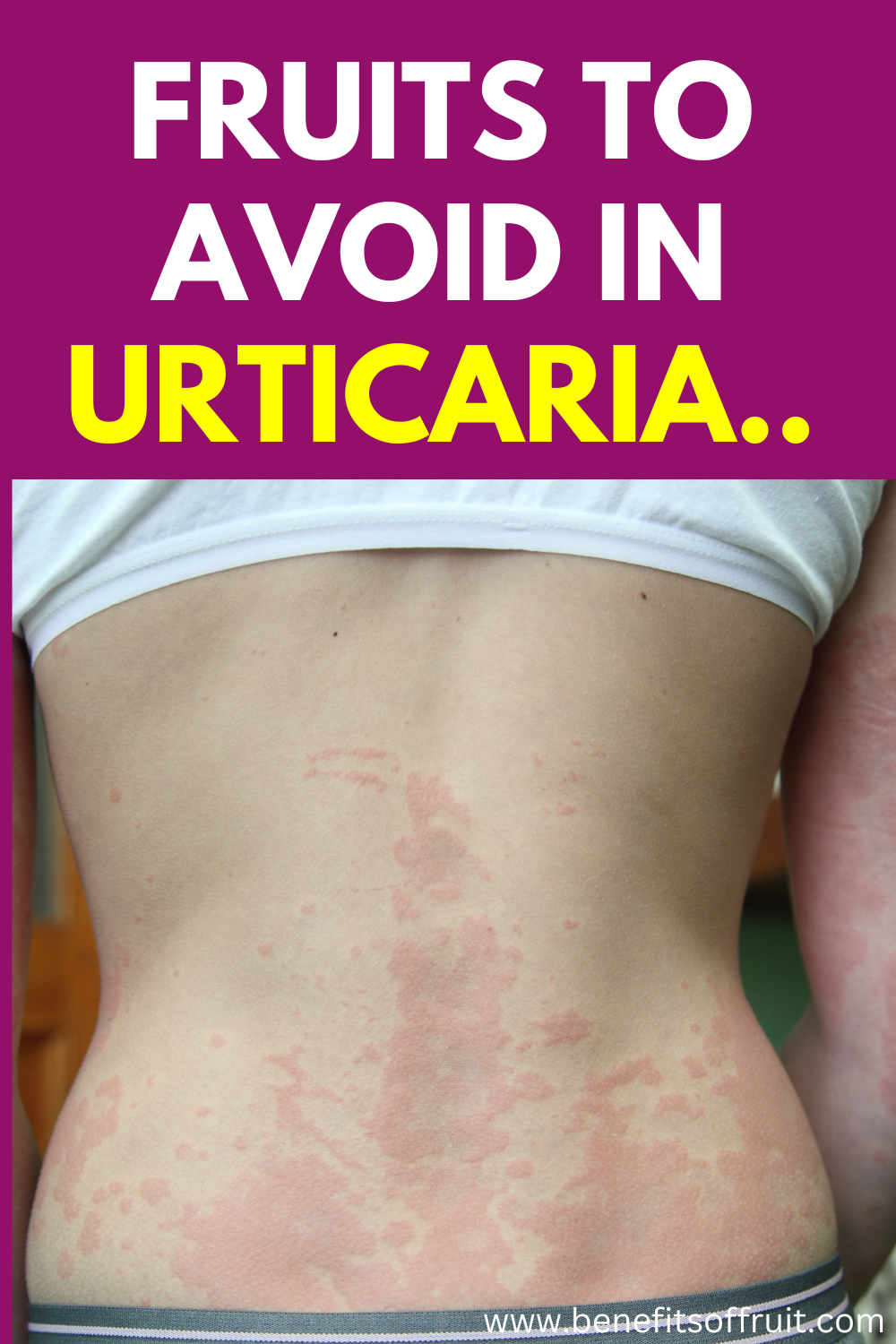Urticaria, often referred to as hives, manifests as red, itchy welts that can suddenly appear on any part of the body. These welts can vary greatly in size and shape and may be fleeting. Although urticaria can arise from various triggers, dietary factors play a significant role, particularly certain fruits. Given their potential to release histamines or cause allergic reactions, it’s crucial for those afflicted to recognize which fruits to avoid. This guide aims to provide detailed insights into those fruits particularly problematic for urticaria sufferers.
Understanding Food Triggers in Urticaria
The body’s release of histamines during an allergic reaction can lead to inflammation and symptoms like hives. Some foods contain histamines or can prompt the body to release more, exacerbating urticaria symptoms. In addition to histamines, certain proteins in fruits may trigger allergic reactions leading to urticaria. Identifying and avoiding such fruits is crucial for managing this skin condition effectively.
Fruits Commonly Linked to Urticaria Flares
Certain fruits are known to potentially trigger or exacerbate urticaria symptoms. Here’s a detailed look at these fruits:
Citrus Fruits
Oranges, lemons, limes, and grapefruits are notable for their high vitamin C content but they are also rich in natural histamines. These fruits can stimulate additional histamine release in the body, aggravating urticaria symptoms. The bright, tangy flavors of citrus fruits can be tempting, but their potential to induce skin flare-ups makes them a risky choice for individuals with sensitive conditions.
Strawberries
While strawberries are a beloved fruit loaded with antioxidants and vitamin C, they also contain significant levels of natural histamines. Moreover, strawberries are among the more common allergenic fruits, possibly triggering allergic reactions manifesting as urticaria. Their red color and sweet, slightly tart flavor make strawberries a popular choice in diets, but for urticaria sufferers, they might be best avoided.
Tomatoes
Often mistaken for a vegetable, the tomato is technically a fruit and is another histamine-rich food. Tomatoes and tomato-based products can induce histamine release, leading to urticaria symptoms. This can be particularly challenging for those who enjoy these versatile fruits in sauces, salads, and dishes where they add a rich, acidic flavor.
Pineapple
This tropical fruit contains bromelain, an enzyme that can influence the immune system and potentially trigger an allergic response in some individuals. While bromelain can be beneficial in reducing inflammation for some, it may cause an opposite reaction in those with urticaria, leading to increased symptoms and discomfort.
Bananas
Known for their high potassium content, bananas also have compounds that may trigger histamine release. This makes them another fruit that might exacerbate urticaria symptoms. Their convenience as a quick, energy-boosting snack makes them a popular choice, yet their potential as histamine releasers should be considered by those prone to hives.
Kiwi
A rich source of vitamins C and K, kiwi is also a known allergen that can cause severe reactions, including urticaria, in susceptible individuals. The distinct green color and exotic taste make kiwi a favorite in fruit salads and as a snack, but its allergenic potential means it must be approached with caution.
How to Identify Problematic Fruits?
Identifying which fruits exacerbate urticaria involves observation and sometimes medical testing. Keeping a food diary can be an effective method to track consumption and note any correlation with urticaria flare-ups. An elimination diet, which involves removing suspected triggers from the diet and then gradually reintroducing them one by one, can help pinpoint specific fruits that cause issues. It’s important to undertake such a diet under medical supervision to ensure nutritional balance and safety.
Consulting with an allergist or dietitian can also provide insights into which fruits to avoid and how to substitute them with safer alternatives. These professionals can offer tailored advice based on individual health needs and allergy tests.
